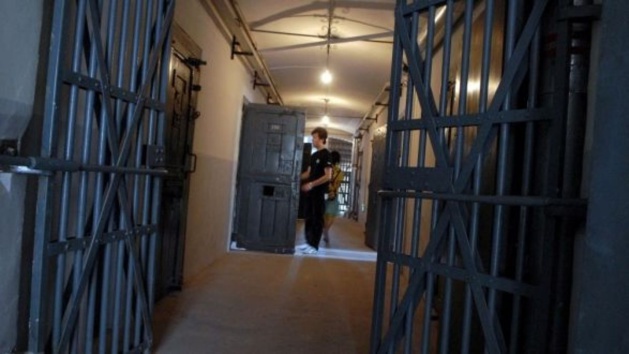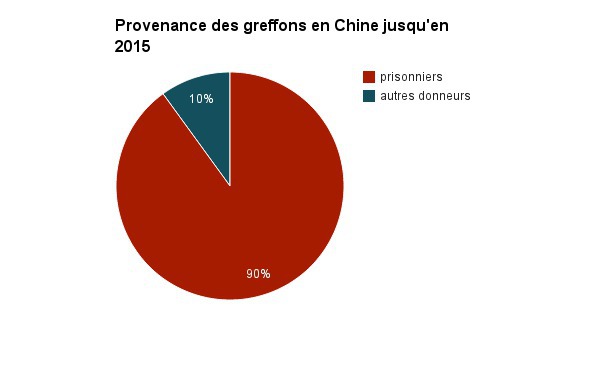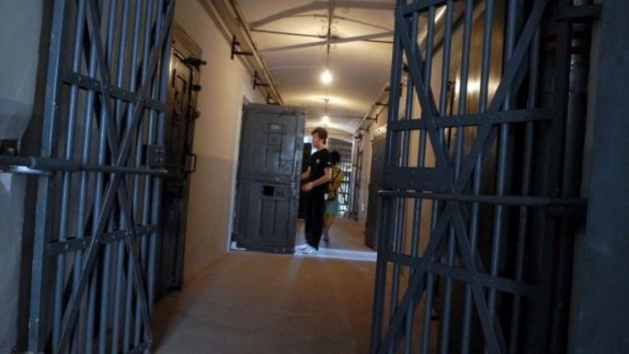
Credit RTBF
According to official estimates, two thirds of transplanted organs come from a person who is sentenced to death. If it does not come from someone condemned to death, in 9 out of 10 cases it will come from a prisoner. Organ removal from executed criminals has officially been legal since a regulation from 1984 in China, but it requires the consent of the condemned person and the written authorization of his or her relatives. However, NGOs denounce abuses from Chinese authorities, who, most of the time do not ask for the prisoner’s permission or his relatives.

Is China done with this practice? Last November the government stated that organ removal on death-sentenced prisoners would be over on January 1st 2015. But prisoners’ organs serve a huge demand; around 300,000 patients are reported to be waiting for a heart or kidney transplant each year. In fact, according to the agency Chine Nouvelle only 10,000 transplants were carried out. The country was already facing a dramatic lack of donors.
A practice hardly existent in China
What is the source of this deficit? Organ donation is not widespread in the Middle Kingdom. Liyou Zhang, a Chinese student at Sciences Po Paris explains: « According to the Chinese tradition, it is important to keep the body of the dead intact for its future life. That is why the bodies have to be buried and not cremated. ». « The young Chinese might be more open today about organ donation. The difficulty will be to convince their parents ».
This mistrust towards organ donation comes from Confucian writings which fills Chinese culture. In the Book of filial piety, Confucius wrote: « Our Body, our hair, our skin comes from our parents, they shall not be damaged; that is the starting point of filial piety ». The body must be and remain “one and indivisible“.
Back in 2015: last year, only 3000 were saved. According to Huang Jiefu, director of the organ donation Committee and former Health minister, 1300 Chinese people donated organs posthumously that same year. A growing number, but not sufficient compared to the demand. How are Chinese authorities planning to compensate that lack?
Public Ordinances Are Multiplying
Liyou Zhang has noticed that for the last few years, the media is reporting more and more stories about organ donations: a patient close to death saved by a donor, a person diagnosed with cancer who allowed his doctor to take his organs after his death… Stories that « give a sense to life ». Dictated by political power, these stories might encourage the population to change their mind on organ donation. But for now, numbers are still disastrous: only 6 out of 10 million would be ready to become organ donors. According to the Chinese organ donation Committee, this ratio is 62 times bigger than in Spain.

The university hospital of Wuhan, constructed with the university hospital of Nancy, is expanding on the model of its French cousin. It has been designated to be the center of the organ transplantation activity. In 2009 they opened a “laboratory of cell and tissue engineering applicable to regenerative medicine”. What is the aim? To develop compatible stem cells with liver transplants or artificial hearts. Thanks to the high-speed transit line inaugurated in 2011, Wuhan is only three hours away from Canton, one of the biggest megalopolis of the country with 8.5 million inhabitants. Above all, Canton knew how to set up an organ donation system, initiated by the Chinese Red-Cross since March 2011. The project has spread to 38 Chinese hospitals, which has led to 465 donations. But the largest number of donors still comes from Canton, with around a hundred organs donated.
Technology and mass communication are the two tools public authorities need in this fight against numbers. The diffusion of a message at a national scale has never been a problem for the People’s Republic and the country will soon be at the cutting edge of technology for transplants. But it remains to be seen if the number of donations will increase.






























